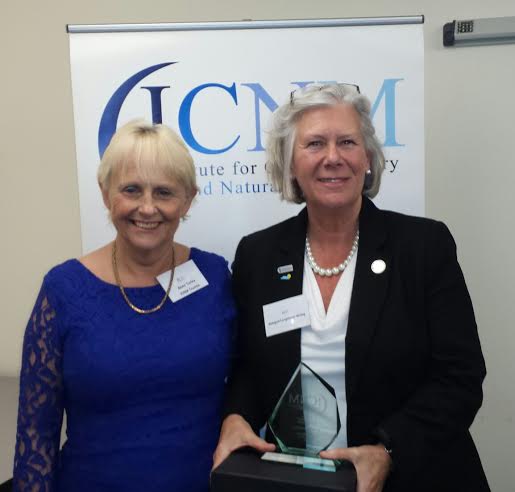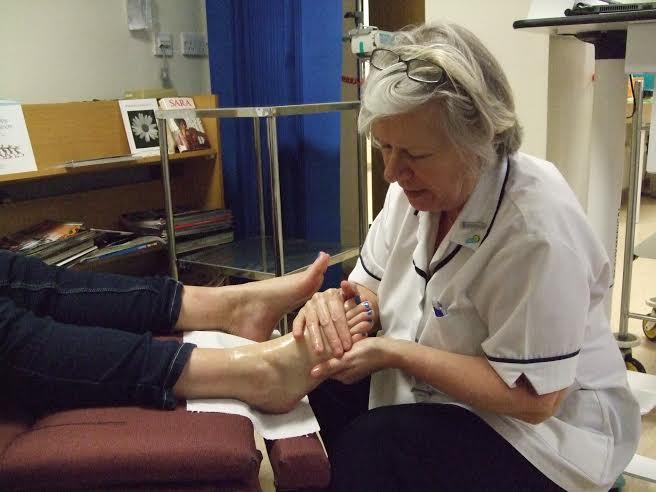By Margaret Grham
Frost Magazine is delighted to announced that Abbigail Langstone-Wring , our regular Complementary Practioner contributor, has been presented with an award in the “Best Complementary Practitioner “ category of the Institute of Complementary and Natural Medicine 2015 Awards. Bravo, bravo,
A COMPLEMENTARY PRACTICE.
by Abbigail Langstone- Wring. BSc SBRCP MAR. Director ICR.
Hocus Pocus or an underexploited resource? By Abbigail Langstone
As a Complementary Practitioner celebrating twenty-five years in professional practice I am still amazed by the positive feedback of the beneficial effects of the therapies I deliver. None more so than the recently gathered information from a Clinical Reflexology project that I have been working on since Nov 2014.
The aim of the project, as put forward by the Lead Cancer Nurse Specialist, was to introduce Complementary Therapies into a Cancer Ward and Chemotherapy Unit at the local NHS Hospital with a view to reduce patient anxiety to enhance the patient experience.
I formally declared my interest and snet off a detailed CV that contained evidence of my range of skills and techniques and specialist work experience gained through being a local hospice volunteer in palliative care. A funder for the project was already in place and with their approval a hospital interview was arranged with the result of an honorary contract being granted to me.
I must just stop and say that not only was I honoured and proud, but also momentarily overwhelmed at the possible importance of this responsibility.
I began the project by looking for information of past studies and research published in journals on the role of Complementary Therapies in stress management. After a great deal of thought I settled with the decision to trial Clinical Reflexology.
Why? Primarily for it’s mode of action.
For those not aware of what Clinical Reflexology is or how it works. Briefly, it is the application of pressure via the fingers or thumbs to mapped areas on the feet, hand or ears that correspond to organs and systems of the body. Having a close affinity to Acupuncture/ Acupressure, it may calm and ease tension throughout the nervous system, encouraging relaxation throughout the body. Given the specialist patient group my treatments were modified to be sympathetic to the established side effects of their individual medical treatment.
Secondly, suitability of delivery. Choosing to work via the feet, it would enable me to access patients on the ward in their beds, or chairs and on the chemotherapy unit in their reclining chairs whilst receiving their chemotherapy treatment. Also, it would be the least obtrusive, offering no disruption to the staff and the everyday running of a busy ward and unit.
To enable me to asses the effectiveness of my treatments I collected data via a simple evaluation tool. At the end of the year ( November ) I will have completed 300 treatments. The feedback from patients and staff has been very positive. I am busy compiling a final report but the evidence is indicating an average drop of between 2-4 points in stress levels following my treatment.
Due to these positive findings, the good news is that I have been successful in acquiring funding to extend and expand the project into 2016/7.


